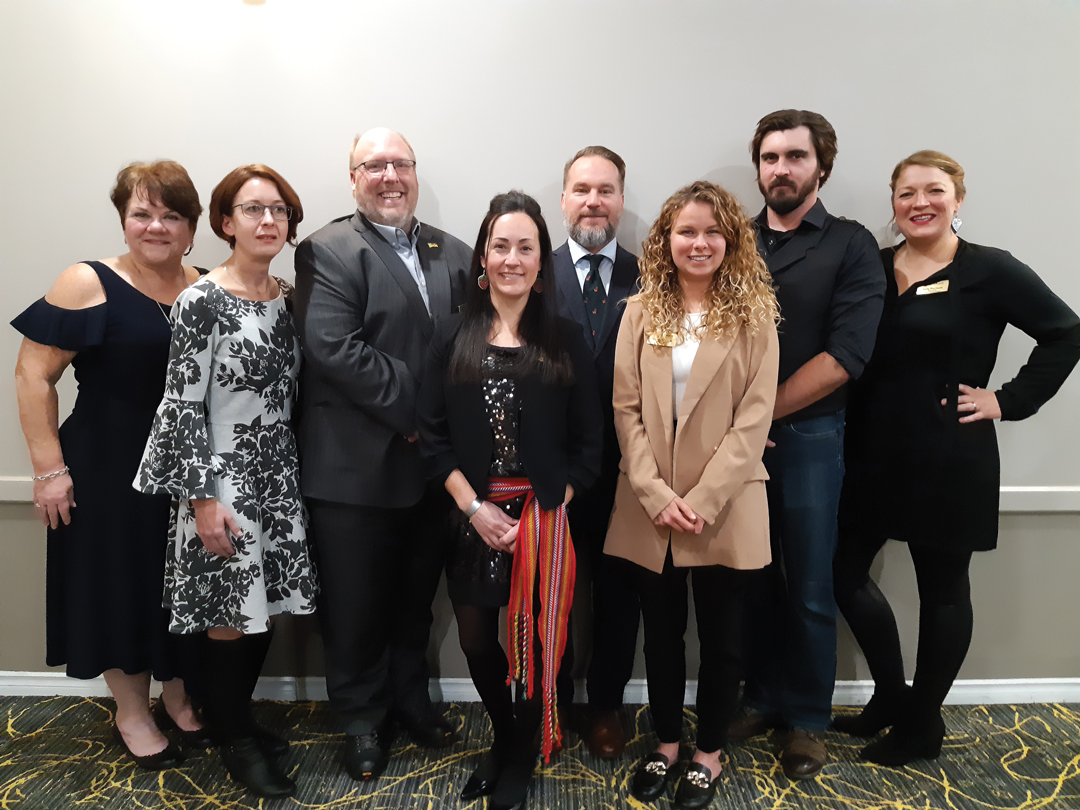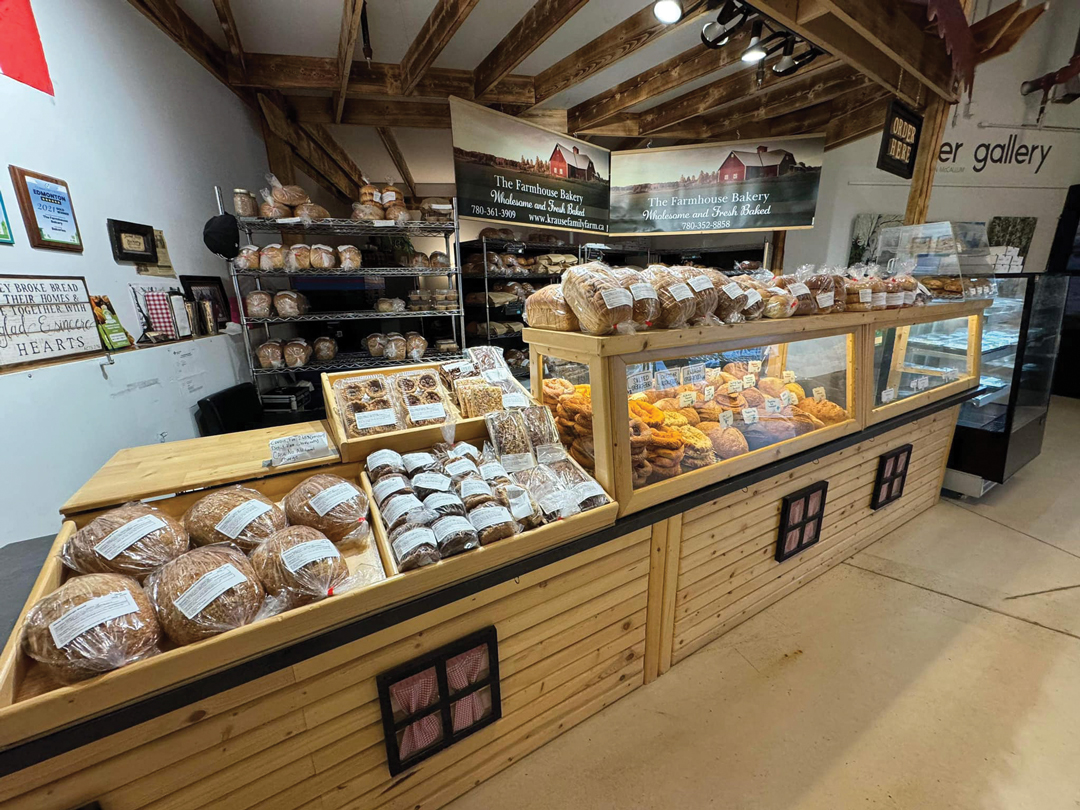CHAMPIONS OF AGRICULTURE
BY ZOLTAN VARADI • PHOTO COURTESY OF NUFFIELD CANADA
The intent of the Nuffield Canada Scholarship program is to connect agricultural scholars with farmers and ag professionals across the globe. Established in 1950, the program is geared towards mid-career individuals, it empowers recipients with $15,000 and a two-year mandate to travel and research a topic of their choosing. Upon completion of their research, each must produce a 10,000-word report and share their findings with the Canadian agriculture industry at a local, provincial and national level.
“The value of a Canadian Nuffield Scholarship begins with its people and the experience they gain travelling the world, being introduced to new perspectives and cultures coupled with incredible conversations around innovation, technology, people and ideas,” said Steve Larocque, Nuffield Canada Chair and a 2008 Scholar. “All of this is brought home to Canada, their community and their businesses where learnings are shared, new ideas are transformed and the status quo is challenged. The result is the development of strong, resilient leaders [who are] champions of Canadian agriculture. The byproducts are fresh ideas, and a renewed passion for advancing agriculture.”
Six 2024 participants will investigate topics that range from agri-tourism to seed production networks for native plant varieties. Significantly, for the first time in the scholarship’s 74-year history, an Indigenous person with an Indigenous- focused topic has been named. Tatum Claypool (pictured above, centre, with sash), a member of the Métis Nation of Saskatchewan, will pursue “The Resurgence of Indigenous People in Agriculture: Exploring the barriers, challenges and opportunities” as her area of study.
“The ideal outcome of this project is to provide insights to help Indigenous people creatively disassemble barriers in this industry so they can reclaim their inherent seat at the agriculture table,” said Claypool. “I see the opportunities that a Nuffield scholarship offers as a key component in my quest to gain and translate knowledge in this area.” Claypool plans to travel to Australia, New Zealand and the U.S. and visit Indigenous communities that have successfully transitioned into agricultural production, as well as those that aim to do so. “Nuffield encourages us to go global,” said Claypool. “That’s the whole essence: to get out of your country, get out of your comfort zone and go learn.”
Claypool serves as a director of internal Indigenous engagement with Farm Credit Canada’s (FCC) Indigenous Financing team. She is also a former small business owner who previously ran a fine dining establishment on Vancouver Island before returning to her native Saskatchewan. In keeping with her professional background, she plans to delve into Indigenous financing systems in her countries of study.
“At FCC, we work towards providing access to capital, one of the major barriers [to Indigenous farmers]. I am going to go visit communities that are taking their land use back and empowering their people with food security and agriculture projects. I also want to see how their banking systems are handling access to capital. I want to know how they are navigating government policy to make these projects happen.”
Fellow 2024 Nuffield Scholar Matt McIntosh (pictured above, second from right), who is a journalist and grain farmer, feels that starting conversations is key to his project. McIntosh, who goes by The Rural PhilosoFer when donning his writing cap, aims to investigate “programs, initiatives and other efforts to help farmers (as well as landowners more generally) re-establish or conserve ecologically and culturally significant spaces without harming farm viability.”
“I love my home area, [but] I look at this completely treeless, flat landscape, and I think, well, let’s extrapolate this by another 10 years, 20 years, 30 years. What are we trying to do here?” he said of his land in southern Ontario near Windsor. He explained little remains of the region’s once uniquely rich plant and animal life.
“Let’s try and understand what the issue is and how we can do something about it, because this year-to-year thinking is not going to bring back species at risk. It’s not going to fix our nutrient loading problem and waterways, and so on.”
McIntosh’s reporting inspired his scholarship project. A group of Irish cattle farmers employ a seemingly counterintuitive grazing system. Rather than have their herds graze upland in the summer months, as is the accepted practice, they do the opposite, grazing them at high altitude from fall to spring. In doing so, the cattle manage the growth of shrubs that crowd out native flora and free the farmers from reliance upon silage. The practice benefits the environment as well as farmers’ wallets.
“This cattle system is unique to this region in Ireland. It’s an ancient system, literally a thousand-year-old practice,” said McIntosh. “But in recent decades it went away because of all the typical pressures of having to intensify. But through much research and dogged lobbying, they ended up getting this practice re-established. From an ecological point of view, it’s very beneficial to the region.”
McIntosh is in the initial stages of his research with conclusions yet to be reached. For now, he would like to see people take a can-do attitude and embrace small, local changes such as the Irish cattle farmers have done.
Inherent reluctance to change can be a barrier to such actions, he believes. “If we think nothing’s ever going to work, then it’s never going to work. Beyond that, it goes back to the psychological element of being able to have a proper conversation. I just think there’s got to be some opportunity even for these little things.”
By way of example, he cited erosion mitigation methods that could be employed in his own area of Ontario. “Just doing something along the waterways, changing how we manage the edges of our fields,” he said. “Planting trees or having some grassland is something that’s not really going to infringe on farming but is going to prevent soil from getting into the ditches.”







Comments